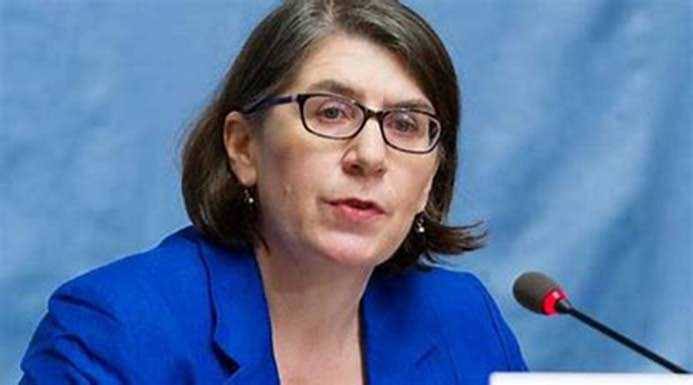The UN High Commissioner for Human Rights (OHCHR) has asked for an investigation into claims of serious sexual abuse and the use of live ammunition against demonstrators in Sudan over the weekend.
The allegations surfaced following Sunday’s demonstrations in Khartoum, where tens of thousands gathered to mark the third anniversary of the protests that led to the overthrow of long-time President Omar al-Bashir in April 2019.
Demonstrators marching to the presidential palace were also protesting the military coup in October and the political agreement signed later that day, according to UN rights office spokesperson Liz Throssell.
She stated in Geneva that security forces were accused of raping or gang raping 13 women and girls.
According to her, two protesters were killed and 300 others were injured after being shot. Some were hit with live ammunition or tear gas canisters, and others were beaten by security forces, while others had breathing problems after inhaling tear gas.
“With more protests planned for this weekend and in the coming weeks, it is critical that security forces guarantee and protect the right to peaceful assembly while also acting in full compliance with international laws and standards governing the use of force,” Throssell said.
The UN rights office spokesperson stated at a scheduled briefing that the OHCHR’s Joint Human Rights Office in Sudan had learned of the 13 allegations of rape or gang rape.
“We have also received allegations of sexual harassment by security forces against women fleeing the area around the presidential palace on Sunday evening,” she added.
The OHCHR official called for the perpetrators to be identified and prosecuted, citing “unnecessary or disproportionate use of force, particularly use of live ammunition.”
Throssell noted that an investigation into reported violence and rights violations since October’s military coup, which the UN High Commissioner for Human Rights earlier said had betrayed “the courageous and inspiring revolution of 2019,” had been tasked with a committee of senior prosecutors.
However, she emphasized that these findings should be made public “with maximum transparency, with the goal of holding to account, including through criminal investigations, those responsible for human rights violations and abuses.”
Elsewhere in Sudan, a spokesperson for the UN Human Rights Office reported a deadly increase in intercommunal violence in Darfur and South Kordofan.
Since September, at least 250 civilians have been killed, 197 have been injured, and more than 50,000 have been displaced.
Earlier in December, the UNHCR reported that nearly tens of thousands of Sudanese had fled violence in Jebel Moon, a locality in West Darfur, one of the five Darfur States. Over 2,000 of them, mostly women and children, had fled to neighboring Chad.
Sudan has approximately three million internally displaced people, with more than 80% residing in the five Darfur states. According to UNHCR, around 200 violent incidents in Darfur have been reported in 2021, resulting in new displacement.
“There have been serious protection gaps in Darfur, particularly since the reduction of state security forces in key areas of Darfur and the long delays in implementing a National Plan for Civilian Protection,” Throssell said.
Although the national authorities intend to deploy a 3,000-strong temporary joint protection force later this month, a spokesperson for the UN rights office said it was critical that they first receive comprehensive training in human rights and international humanitarian law.
“It is also critical that those responsible for human rights violations and abuses committed, regardless of affiliation, are held accountable,” she said.
In her most recent update to the Human Rights Council on the situation in Sudan, UN Human Rights Chief Michelle Bachelet condemned the Oct. 25 coup and subsequent arrests as reminiscent of the country’s dark recent past.
